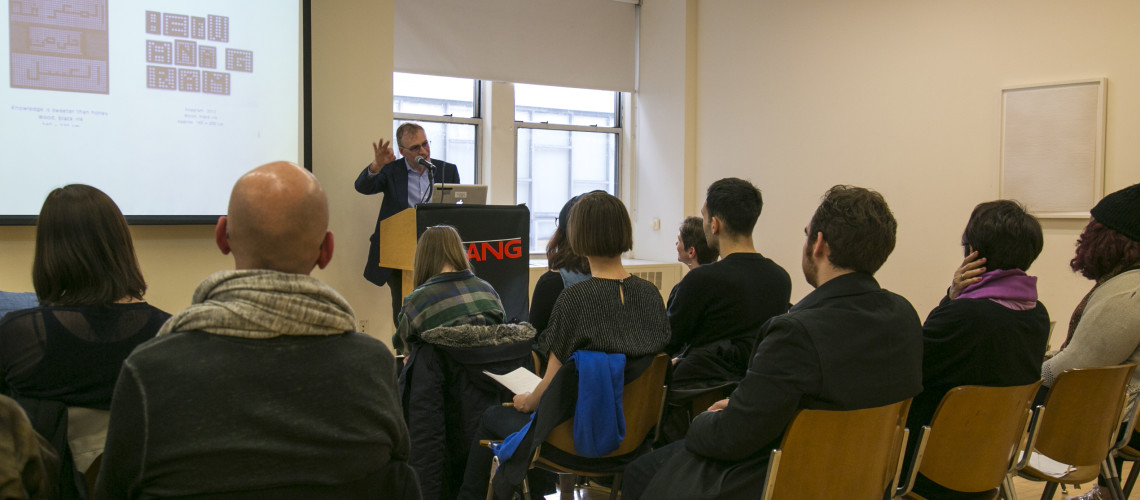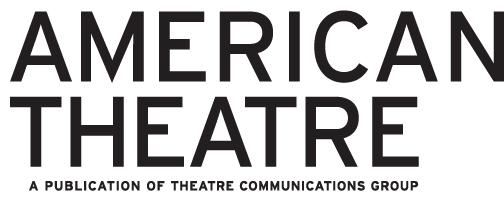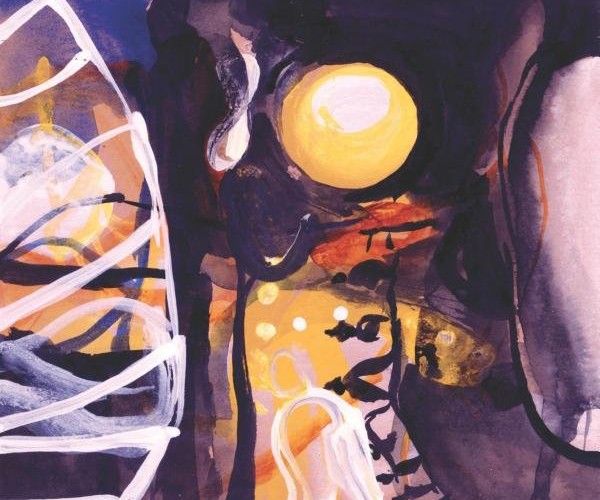
by Colette Brooks As a culture, we tend to associate imaginative work with fiction; we have traditionally looked to nonfiction for guidance, expertise, and... Read More

The Stony Brook Short Fiction Prize is seeking original fiction from undergraduate students and offers a prize of $1000 for a story that “stirs, shifts, or... Read More

By Associate Professor Carolyn Vellenga Berman Feb. 16, 2016. In a striking inaugural lecture for the Literary Studies Department’s new series on Literature and... Read More

In December 2014, American Theatre Magazine posted their version of the #FergusonSyllabus, a list of resources relating to questions of racial and economic justice. ... Read More

Poet and teacher Don Yorty creates videos of poets reading their work at home. In the fall of 2015, he went to Mark Statman’s... Read More
by Colette Brooks
 As a culture, we tend to associate imaginative work with fiction; we have traditionally looked to nonfiction for guidance, expertise, and information, and nonfiction that doesn’t satisfy these aims is sometimes confusing. But just what is imagination? I thought it might be useful to consult the dictionary. The first definition of imagination I found is the one we’re most familiar with, the capacity to make things up; but the second definition, interestingly, relates to another kind of capacity: ‘the ability to confront and deal with reality by using the creative powers of the mind.’ This is actually an apt definition of creative nonfiction. It takes two essential elements, reality and the mind, and joins them in creative tension. There is a growing place for such complex nonfictional perspectives in our culture. Much of what traditional nonfiction has always promised (guidance, expertise, information) is now freely offered throughout the web, and that opens up a welcome space for writers of more ambitious, reflective nonfiction.
As a culture, we tend to associate imaginative work with fiction; we have traditionally looked to nonfiction for guidance, expertise, and information, and nonfiction that doesn’t satisfy these aims is sometimes confusing. But just what is imagination? I thought it might be useful to consult the dictionary. The first definition of imagination I found is the one we’re most familiar with, the capacity to make things up; but the second definition, interestingly, relates to another kind of capacity: ‘the ability to confront and deal with reality by using the creative powers of the mind.’ This is actually an apt definition of creative nonfiction. It takes two essential elements, reality and the mind, and joins them in creative tension. There is a growing place for such complex nonfictional perspectives in our culture. Much of what traditional nonfiction has always promised (guidance, expertise, information) is now freely offered throughout the web, and that opens up a welcome space for writers of more ambitious, reflective nonfiction.
 Family pieces and personal memoir are the low hanging fruit of creative nonfiction – writers who don’t ‘make it up’ need to find material somewhere, and when one is just starting out this resource seems inexhaustible, until suddenly it isn’t. Many years ago at Yaddo, an artists’ colony, I was working on a piece about my family that would later be published in a literary journal, though I didn’t know that then. This was my third family piece, and I’d just gone through the grandparents. I began to look down the road of what I had hoped would be a long nonfiction writing life, newly worried about running out of material, having nothing else to say, while watching writers of all stripes pounding out what seemed to be massive manuscripts all around me. (One becomes self-conscious at a place like Yaddo. I later learned that everybody’s anxious, but that’s another story.) I hesitantly mentioned my anxiety to a new novelist friend and roomie, while sharing an end-of-day
Family pieces and personal memoir are the low hanging fruit of creative nonfiction – writers who don’t ‘make it up’ need to find material somewhere, and when one is just starting out this resource seems inexhaustible, until suddenly it isn’t. Many years ago at Yaddo, an artists’ colony, I was working on a piece about my family that would later be published in a literary journal, though I didn’t know that then. This was my third family piece, and I’d just gone through the grandparents. I began to look down the road of what I had hoped would be a long nonfiction writing life, newly worried about running out of material, having nothing else to say, while watching writers of all stripes pounding out what seemed to be massive manuscripts all around me. (One becomes self-conscious at a place like Yaddo. I later learned that everybody’s anxious, but that’s another story.) I hesitantly mentioned my anxiety to a new novelist friend and roomie, while sharing an end-of-day  we-deserve-it bottle of Bordeaux. She made quick work of my angst. Nonsense, she declared, the world’s a big place and there are a million things to write about. To make a long story very short, she was right. Once one has exhausted the memoir material, the world opens up in all its idiosyncrasies to those curious enough to explore it. It’s liberating to tell someone else’s story, to give voice to the voiceless, or to take an idea, as one might take a musical phrase, and string it out and extend it. To that end one needs to develop reflective powers –the capacity to amplify the ways in which one thinks about experience while also attending to the power of language and the development of an individual voice.
we-deserve-it bottle of Bordeaux. She made quick work of my angst. Nonsense, she declared, the world’s a big place and there are a million things to write about. To make a long story very short, she was right. Once one has exhausted the memoir material, the world opens up in all its idiosyncrasies to those curious enough to explore it. It’s liberating to tell someone else’s story, to give voice to the voiceless, or to take an idea, as one might take a musical phrase, and string it out and extend it. To that end one needs to develop reflective powers –the capacity to amplify the ways in which one thinks about experience while also attending to the power of language and the development of an individual voice.
I came to realize that creative nonfiction was the kind of writing I found most deeply, inexhaustibly satisfying.
And that is what I try to teach in my nonfiction classes.